One of the most attractive things I find in a fellow traveler is somebody who makes an effort to speak the local language. I am not suggesting that you become fluent before you travel to a new place, but learning a few important phrases and making a bit of an effort to speak to the people in their native tongue, shows the local people you respect them. If it is me making these attempts, it usually results in a certain amount of laughter at my pronounciation of the whatever it is I am trying to say and a welcoming / inviting reaction, that often has me invited to join in local experiences and conversations, that I might not have had otherwise.
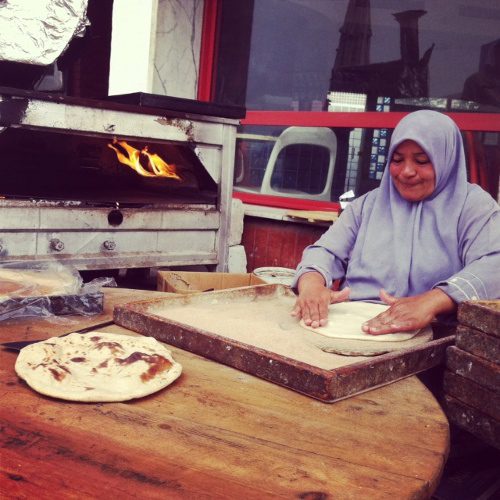
It is for this reason that we are starting a regular column called In Translation, with a few choice words and phrases from the different places we visit.
To begin, a little bit of Arabic, from my recent trip to Egypt. I’m embarrassed to say that I didn’t brush up on my Arabic for this trip, as I was running around getting ready at the last minute. I thank the restaurant staff at the Intercontinental Citystars Hotel Cairo for rectifying this by teaching me new Arabic words that first night at dinner. I also apologize to them for butchering that Arabic. I blame my extreme exhaustion and thank then for treating my mistakes with good humour and further tutelage.
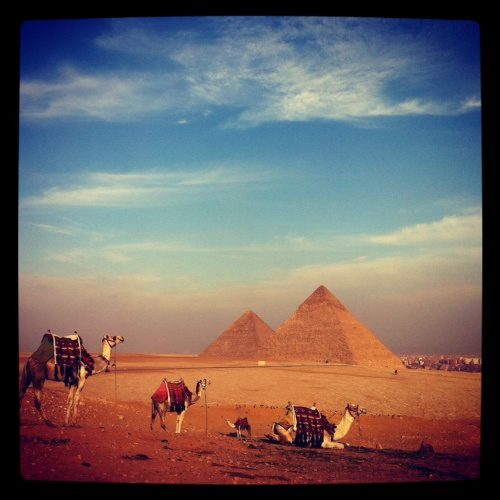
This is just a beginning, we will add to this list with future visits to Arabic speaking countries and with words and phrases that you share below in the comments.
In my humble opinion, the most important words in any language are the simple ones that focus on daily social graces. That is where I’ve begun.
Hello ~ Salaam or Marhaban
I’m rather partial to Salaam as a greeting, as it also means peace.
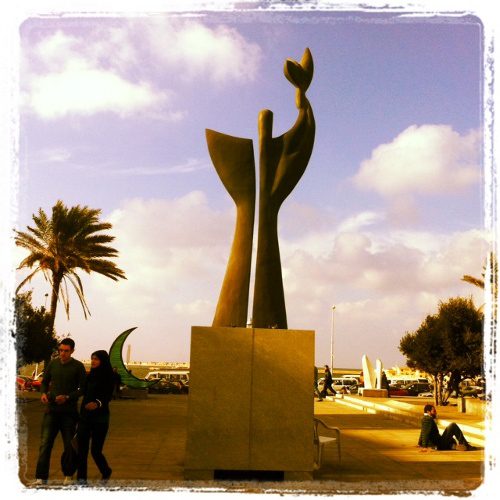
Good Morning ~ Sabah El-Khair
Good Evening ~ Massa’a El-Khair
Please ~ Min Fadlik (to women only – this would be offensive, if to a man)
~ Min Fadlak (to a man)
An explanation of suffixes in Arabic, courtesy of Maria (aka. @LatinAbroad):
In Arabic, the suffix has the sex AND the person (1st, 2nd, 3rd). Thus, if it ends in “ik” that means it is feminine second person (singular). So, for masculine, you would say ” Min fadlak” with AK referring to male second person (singular).
Maria writes a fair bit on travels in the Middle East. You can read all about her adventures on LatinAbroad.com and TravelTheMiddleEast.com.
Thank You ~ Shukran
Having learned Shukran while suffering from serious jet lag, I mixed it up for my first couple of days in Egypt with Sakara, my favourite Egyptian beer. Goodness only knows what people thought as I wandered around saying Sakara to everyone. A big Shukran to Egyptian Tom Hanks for his patience in correcting me on this.
Thank You Very Much ~ Shukran Jazilan
No, Thank You ~ La Shukran
Thank You, But I Cannot Marry You!
Sadly I never learnt how to say this, but it might have been useful, as I was saying it a lot in English.
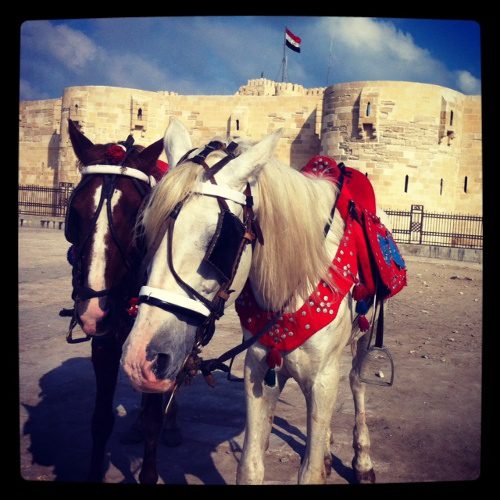
You Are Welcome (to the country or place) ~ Ahlan Wa Sahlan
You’re Welcome (as of what you would say after thank you) ~ Afwan
Courtesy of Maria of Latin Abroad.
Goodbye ~ Ma’assalama
Would love to hear some other Arabic words and phrases that you’ve picked up in your travels.
Safe Travels,
Erica
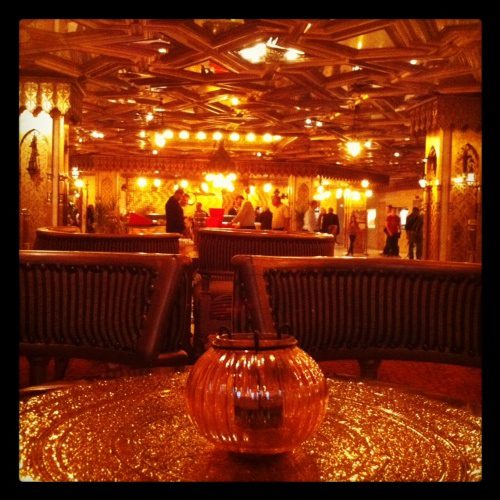

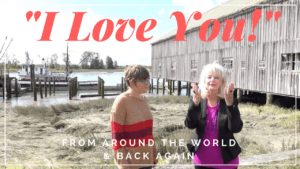
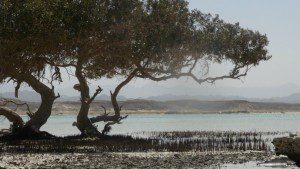
Oh Egypt – how much I miss thee! I lived there for a year, actually to learn Arabic, and loved it. At the time I had a love-hate relationship with the place, but it’s because I didn’t fully understand it 😉
Btw, I had to correct this: Please ~ Min Fadlik ONLY to women. If you say this to a man he might be offended 😉 In Arabic, the suffix has the sex AND the person (1st, 2nd, 3rd). Thus, if it ends in “ik” that means it is feminine second person (singular). So, for masculine, you would say ” Min fadlak” with AK referring to male second person (singular)
Hope this helps! ;).
You are awesome Maria. Thank you!
Oh and two more things:
-You are Welcome (to the country or a place) ~ Ahlan Wa Sahlan
-You’re welcome (as of what you would say after thank you) ~ Afwan 😉
Thanks again Maria!
What an awesome idea for a post! I didn’t know a lick of Turkish when we headed to Istanbul. I was trying to learn some on the plane but I’d never really heard it spoken before either so…was not easy. Then I was asking people when I got there how to say things. I’d try them out when we went places. People got such a big kick out of me making some sort of attempt. It makes such a difference. Fantastic post, Erica!
Thanks Courtney! Yeah, I have to admit Arabic was a little daunting at first, as it’s a different alphabet. But seeing the sounds of words written in English really helped me and the Egyptian people were so very patient with me.
Yes, I agree, learning some basic words of the country you are visiting is very important and well done Erica on the Arabic. I have done this in Italy, France and Germany but found it very difficult in the Czech Republic, that is another language which is extrememly difficult. In Croatia was the same….
Thanks Cynthia. I had some help from Maria.
Those are some elegant looking horses. Nice job on the pictures Erica! I hope mine look as good as yours.
Thanks Alyzee. I had some great subjects.
This is such a great ideas for articles. I’ll be following them all. Arabic seems like it would be quite difficult, but I think we can all manage a few key phrases.
Exactly. Alyzee is now working on a piece on Portugese from her adventures in Mozambique.
What a great way to share travel knowledge with others. I love the idea and I will return to see what language you share next.
Thanks Lisa. Alyzee is working on a piece on Portugese, as we speak.
Great idea for a post and makes the language learning a little more fun in this format!
I’m trying to twist my tongue around some arabic in Lebanon right now. I had no idea about the gender difference for please so hopefully I haven’t offended anyone!
I think the dialect here is different here than in Egypt but one of my favourite words so far is “Shway” meaning ‘a little bit’, really useful when it comes to how much sugar goes into that arabic coffee!
I also love “Khallas” (finished), which is the what the guy admitting me into Jordan said when he gave up on questioning me and stamped my passport. I wasn’t sure what it meant then, now I use it all the time!
I didn’t know about the gender differences either. Those edits are thanks to Maria.
Totally agree with you that learning a few phrases in the local language shows respect and also helps “break the ice” and gets you interesting experiences you otherwise wouldn’t have gotten yourself into. I’ve not had the chance to visit/travel to somewhere requiring arabic yet but your post is a good start 🙂 Sure would love to know how to say “Thank you but I can’t marry you”! 🙂
I know. That would just be a totally awesome phrase to know.
Completely agree! I always try to know a few phrases when I head somewhere that English isn’t the host language. I feel downright rude if I go somewhere without making an effort. Thanks for the Arabic lesson – I’m looking forward to more Translation columns.
Glad I am not alone in that feeling Nicole.
Wow! You are doing an awesome job. I have enjoyed reading about this place you are visiting and I feel like I want to go there one day. Through your eyes I feel transported and experiencing a bit of this country with so much richness in culture. Thanks adios mi querida amiga.. Edna
Thanks Edna! Sending a hug!
Great idea for a post and makes the language learning a little more fun in this format.
Erica you are special and I respect you from reading the sentence that learning a few important phrases and making a bit of an effort to speak to the people in their native tongue, shows the local people you respect them. I agree with you. I’m now in Egypt and also trying to learn new language. Thanks Erica and your last couple horse picture is really awesome.
Yes i strongly agree with this article cause learning a few important phrases and making an effort to speak to the people in their local language displays respect to their culture
Arabic language made easier when written in English oh!and did i mention that injera looks appetizing
Interesting post…on learning learning Arabic in Egypt.
thank you